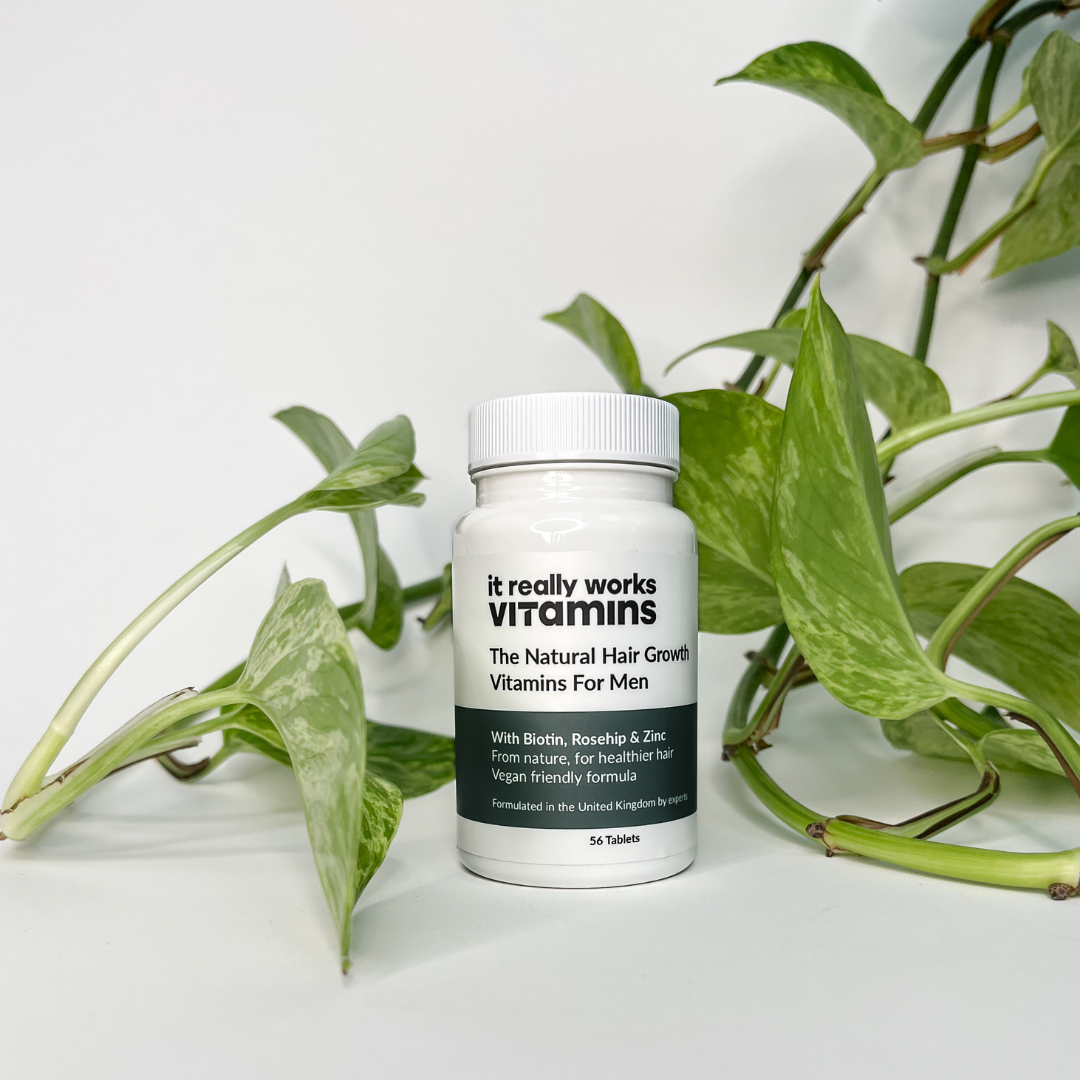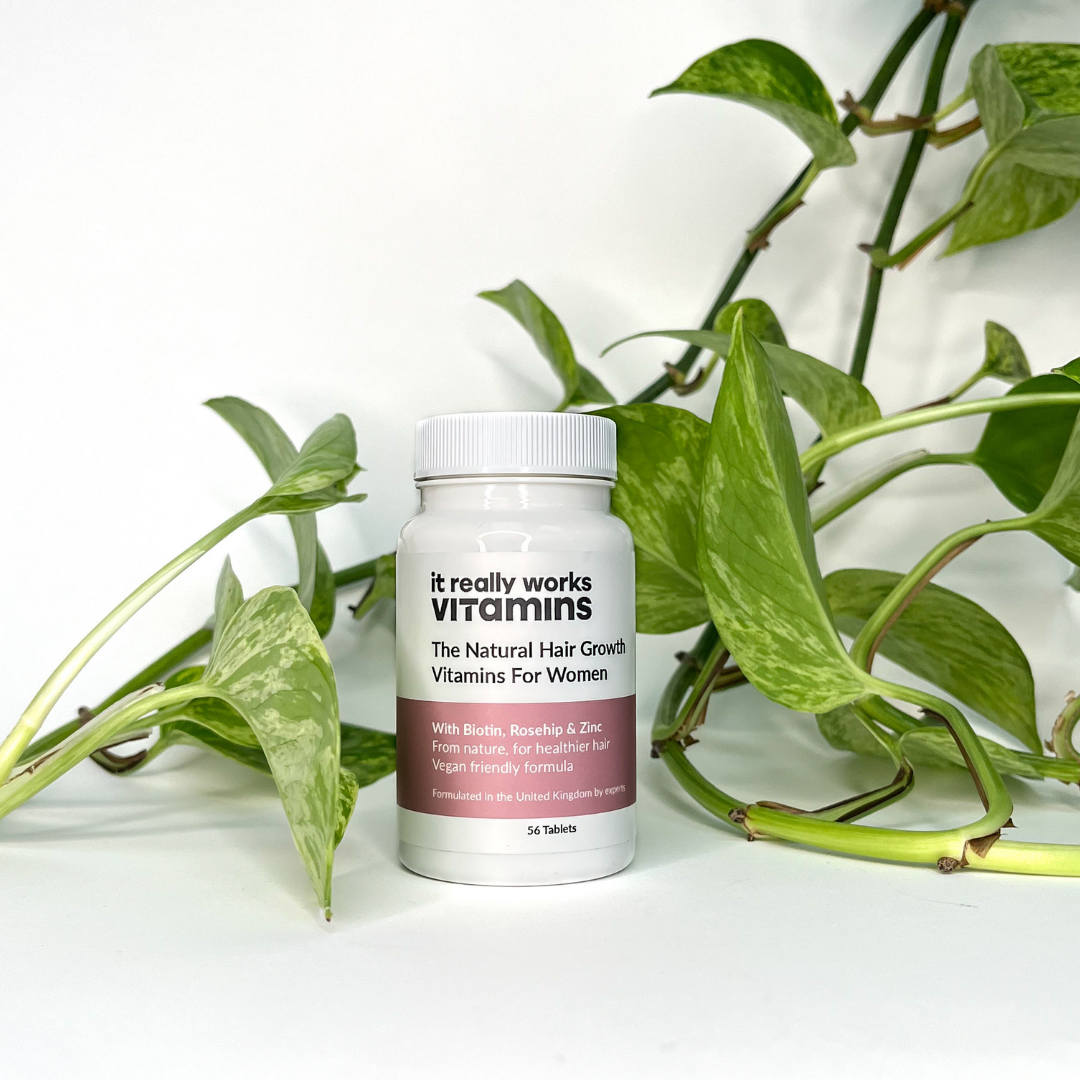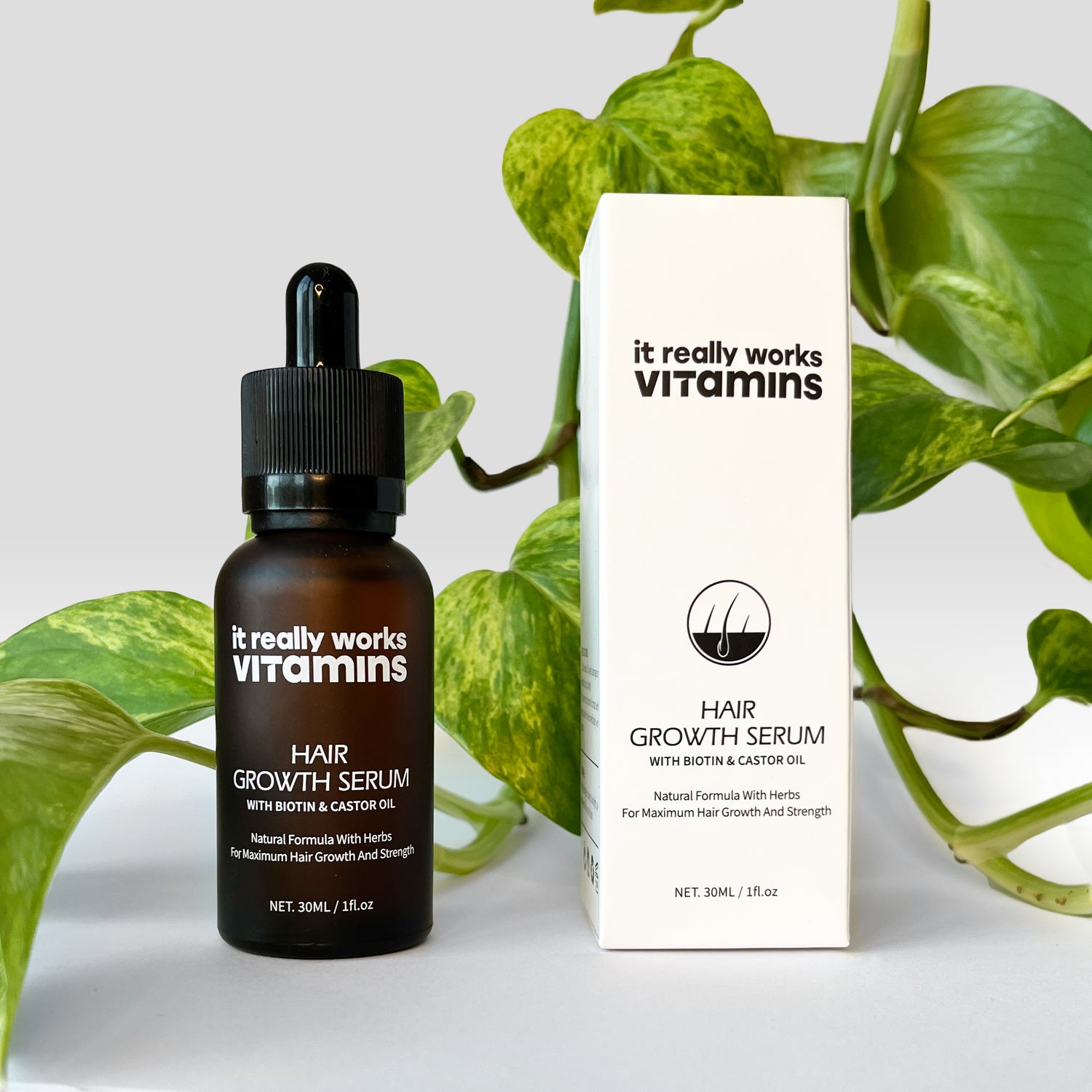A lot of these nutrients work really well in combination, read this all the way through so you don’t miss out.
We’re also gonna discuss the foods that you’re eating that are could be making hair loss worse - it’s all coming up.
Let’s get started on the best vitamins for thicker, stronger hair.
MAGNESIUM
Magnesium is one of the most overlooked minerals for hair growth but it helps in two main ways!
Prevents Buildups on The Scalp
Our hair follicles can get blocked with calcium deposits - which is what can lead to dandruff and dead skin. Magnesium helps to stop these calcium deposits from happening - and it does this through keeping your circulation active.
Better circulation means that calcium’s getting to your bones rather than just sitting on your scalp. And all other nutrients from your diet are also getting to your follicles.
Protein Synthesis
Second, magnesium helps with synthesising protein.
Hair follicles are made up of a protein called Keratin. Better protein synthesis means healthier, stronger, fuller hair. Protein synthesis also helps create melanin, which helps to slow down graying.
Guys are advised to get 400 mg of Magnesium per day, and women should aim for at least 310 mg. (footnote: https://ods.od.nih.gov/factsheets/Magnesium-Consumer). Apparently over 80% of adults aren’t getting the minimum amount of magnesium to keep hair healthy
Magnesium can be found in:
Cashews, Brazil nuts, Almonds
Legumes: So these are lentils, beans, chickpeas, soybeans
Tofu
Seeds
Fatty Fish
And Dark Chocolate.
I should also mention, there’s no need to worry about writing any of this down,
NUMBER 21: Protein
What is Protein?
Protein is a macronutrient necessary to building muscle mass. Hair is made up almost entirely of a protein called Keratin.
In order to have normal, healthy hair growth, we make sure that of everything we’re eating each day - between 10 to 35% of it is made up of Protein.
This include: Chickpeas Tofu, Lentils, Edamame, Chicken, Eggs, Turkey, Fish, and Dairy

Number 20: Iron
Iron helps our hair to stay healthy by making sure it’s getting enough oxygen. When you’re not eating enough iron in your diet, then your body can’t produce the hemoglobin in your blood.
Hemoglobin carries oxygen which is used for growing and repairing cells in your body, including the cells that stimulate hair growth.
This study from Korea found that a lack of iron in your diet could cause hair to fall out in an identical way to male or female-pattern baldness.
But research shows that hair loss from iron deficiency anaemia isn’t very common.
But either way you definitely need to get enough iron in your diet for healthy cell maintenance
What to eat:
Leafy greens
Dark Leafy greens, especially dark ones, are rich in nonheme iron: including
Kale, spinach
Swiss chard
Also: lamb, and venison
Liver
Seafood
Fish high in iron include:
Sardines, canned in oil
Canned or fresh tuna
Number19: Vitamin C
Vitamin C and Iron work best when taken together. Foods high in Vitamin C help to ensure that Iron is more effectively absorbed by your body. Vitamin C is also a powerful antioxidant.
This study confirms that Vitamin C helps to protect against oxidative stress caused by free radicals.
What are free radicals? Without going way too much detail - free radicals are unpaired electrons. Oxygen in the body has splits into two single atoms. The free radicals are singular atoms that seek out other electrons so they can become a pair. This causes damage to cells, proteins and your DNA. Vitamin C protects against the damage these do.
On top of that Vitamin C is needed to create a protein known as collagen — an important part of hair structure. What to eat: Strawberries, sweet potatoes, blackcurrants, blueberries, oranges and papaya.
Now before we go on - if you’re really serious about growing your hair, so you’ve really got to look after yourself to get the most out of these vitamins as well as eating the right foods, you’re gonna need to make sure you’re doing exercise, which keeps circulation healthy, healthy circulation, means blood is bringing nutrients to your scalp and hair - so it’s nice and nourished
Reducing stress, as Cortisol, the stress hormone can move hair into the shedding phase,
Number 18: Vitamin E
Just like Vitamin C, Vitamin E is an antioxidant that can prevent oxidative stress. This small research study found that people with hair loss experienced a dramatic increase in hair growth after supplementing with vitamin E for 8 months.
To get more Vitamin E, pack your diet with spinach, avocados, sunflower seeds and almonds.
Number 17: Selenium
Like vitamin E, Selenium acts as an antioxidant. The Office of Dietary Supplements points out that Selenium is an even more effective as an antioxidant when combined with vitamin E, Selenium also helps regulate your thyroid, the small butterfly-shaped gland which controls your metabolism.It’s recommended that you get 55 micrograms of selenium every day.
Number 16: Zinc
Zinc is needed for a normal healthy immune system and it’s necessary for the growth of every cell in our body (including hair cells).
Early signs of Zinc Deficiency is Hair Loss. So if you’re a women make sure you’re getting 8 milligrams (mg) a day and if you’re a guy, make sure you’re getting 11 mg a day.
Good sources of Zinc are pumpkin seeds, Lentils, meat, spinach, wheat germ, lentils and eggs.
Your body can’t store zinc, so you need to eat enough of it every day.
Number 15: Copper
Copper peptides are known to increase the size of the hair follicles and so help stop hair thinning. And since copper helps in the production of melanin, some researchers say there could be a link between copper and preventing premature graying hair.
Foods high in copper include Spirulina, Shitaake Mushrooms, nuts, seeds and lobster.
The B-VITAMINS GROUP:
There are 8 B Vitamins and they’re collectively called B Complex Vitamins.
These are:
14. Thiamine (B1),
13. Riboflavin (B2),
12 . Niacin (B3),
11. Pantothenic acid (B5),
10. Pyridoxine (B6),
9. Folate (B9), Biotin (B7), and cobalamin (B12).
All B-Vitamins (apart from Vitamin B12) need to be taken daily as they can’t be stored in your body.
B-vitamins are really important as they help carry oxygen and nutrients to your scalp, which helps to maintain healthy normal hair growth. An adult should have 2.4 mcg a day.
Fill up your diet with dark, leafy greens
Eggs, Milk, Liver, Salmon, Shellfish, Legumes
One of the most famous B Vitamins is:
Number 8 : Vitamin B-7
Vitamin B-7, otherwise known as Biotin turns food into fuel for the body
This U.S. study has found that Biotin promotes hair growth in those suffering from thinning hair. https://www.ncbi.nlm.nih.gov/pmc/articles/PMC3509882/
Make sure you’re getting 30 micrograms (mcg) daily.
By eating: Egg Yolks, Spinach, Sweet Potato, Cheese, Cauliflower, Almonds
Just a quick note about Vitamin B12:
If you’re Vegan, you gonna need to supplement your diet with Vitamin B12 as the best sources are animal products including milk, eggs, meat, and fish, although there are a limited number of plant-based foods that contain high amounts.
Number 6: Vitamin A
Vitamin A, also known as Retinol is needed by all cells for growth - especially hair - which is the fastest growing tissue in the body!
Retinol also helps the scalp produce a healthy sebum to nourish and protect your hair.
Guys needs about 0.7 mg of vitamin A per day, and women need 0.6 mg.
Good sources of Vitamin A include:
Orange fruits and vegetables, such as carrots and mangos
Green vegetables, such as spinach and peas
Eggs
Cheese
Milk
Cod liver oil
Number 5: Vitamin D
This 2011 study found that a massive 41.6% of adults in The US are Vitamin D deficient.
One of the side effects of not getting Vitamin D is hair loss.
So fill up your diet with fatty fish, like tuna, mackerel, and salmon, foods fortified with vitamin D, like some dairy products, orange juice, soy milk, and cereals, beef liver, cheese, and egg yolks
Number 4: Not a vitamin, but super useful hair growth herb
Saw Palmetto. This is a plant with small berries that has been used by Native Americans as medicine and food for hundreds of years.

This study found that saw palmetto may increase hair growth in men.
Number 3: Omega-3
Omega-3 helps found in Fish, Flax Seeds, Walnuts and Avocados nourishes hair follicles to make it stronger, shinier and thicker, while soothing dry, flaky scalps and slowing down the inflammation that can result in hair loss.

Eating fish is the best way of getting fish oil or omega 3 than taking supplements.
Number 2: Iodine
If you’re Vegan or Vegetarian - you’re likely to be deficient in Iodine. The thyroid gland uses Iodine to produce thyroxine and triiodothyronine - these dictate how fast your hair grows and it’s thickness, texture, and colour.

So make sure you’re getting Cod, Shrimp, Seaweed, Iodized Salt
Number 1: Rutin!
Rutin is a plant pigment found in Apple peels, Onion, Buckwheat, Citrus fruits, and Black tea

Rutin is a great anti-inflammatory and it protects your body including your hair against free radicals.
Free radicals are singluar oygen atoms that are floating around causing damage.
So that’s our full lowdown on the vitamins, minerals, nutrients and herbs needed for healthy hair growth.
Please subscribe to our newsletter on our website for more articles like this.





